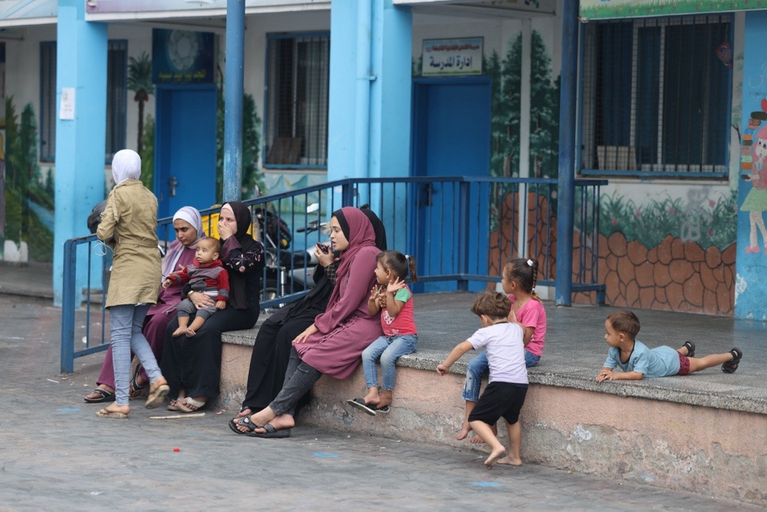Statement by the Humanitarian Coordinator for the Occupied Palestinian Territory, Lynn Hastings, on the hostilities between Palestinian armed groups in the Gaza Strip and Israel
Palestinian armed groups infiltrated Israel on 7 October, killing and capturing hundreds of Israeli civilians and members of the Israeli forces while indiscriminately firing thousands of rockets into Israel.
On 8 October, the Government of Israel declared war, launching intensive air strikes into the densely populated Gaza Strip over the past three days. Hundreds of Palestinians have been killed and over two thousand now injured. The magnitude of the ongoing hostilities has led to grave humanitarian consequences. Homes, schools, medical facilities, and other infrastructure have been damaged and destroyed.
In Gaza, at least 200,000 of the 2.2 million residents, have been displaced after fleeing for fear of their lives or their houses were destroyed by airstrikes. Most of them are taking shelter in UNRWA schools, at least two of which have already been damaged by airstrikes in the area. The numbers of those affected by the hostilities are only expected to increase.
Israeli authorities have cut their water supply to Gaza, reducing an already scarce availability of potable water. And in accordance with the complete siege ordered by the Israeli Government on Gaza, access to electricity, food, and fuel have also been severed, inevitably worsening the already dire humanitarian situation. Palestinians in Gaza now only have electricity to 3-4 hours per day. This hinders the ability of health facilities to function and treat those injured.
The United Nations and its humanitarian partners in the Occupied Palestinian Territory are working to meet acute needs, in particular shelter, in dangerous circumstances. However, access for humanitarian staff and supplies into Gaza has also been cut and the intensity of the hostilities is limiting the ability of staff to deliver aid.
As the security and humanitarian situations continue to escalate, all parties must comply with their obligations under international humanitarian law.
All military and armed groups must abide by the principles of distinction, proportionality, and precaution when conducting their operations.
Civilians, especially children, medical facilities, humanitarian personnel health workers, and journalists must be protected.
Captured civilians must be released immediately and unconditionally.
Anyone captured or detained, including combatants, must be treated humanely and with dignity.
All relevant actors must allow humanitarian teams and goods to immediately and safely reach the hundreds of thousands of people in need.










